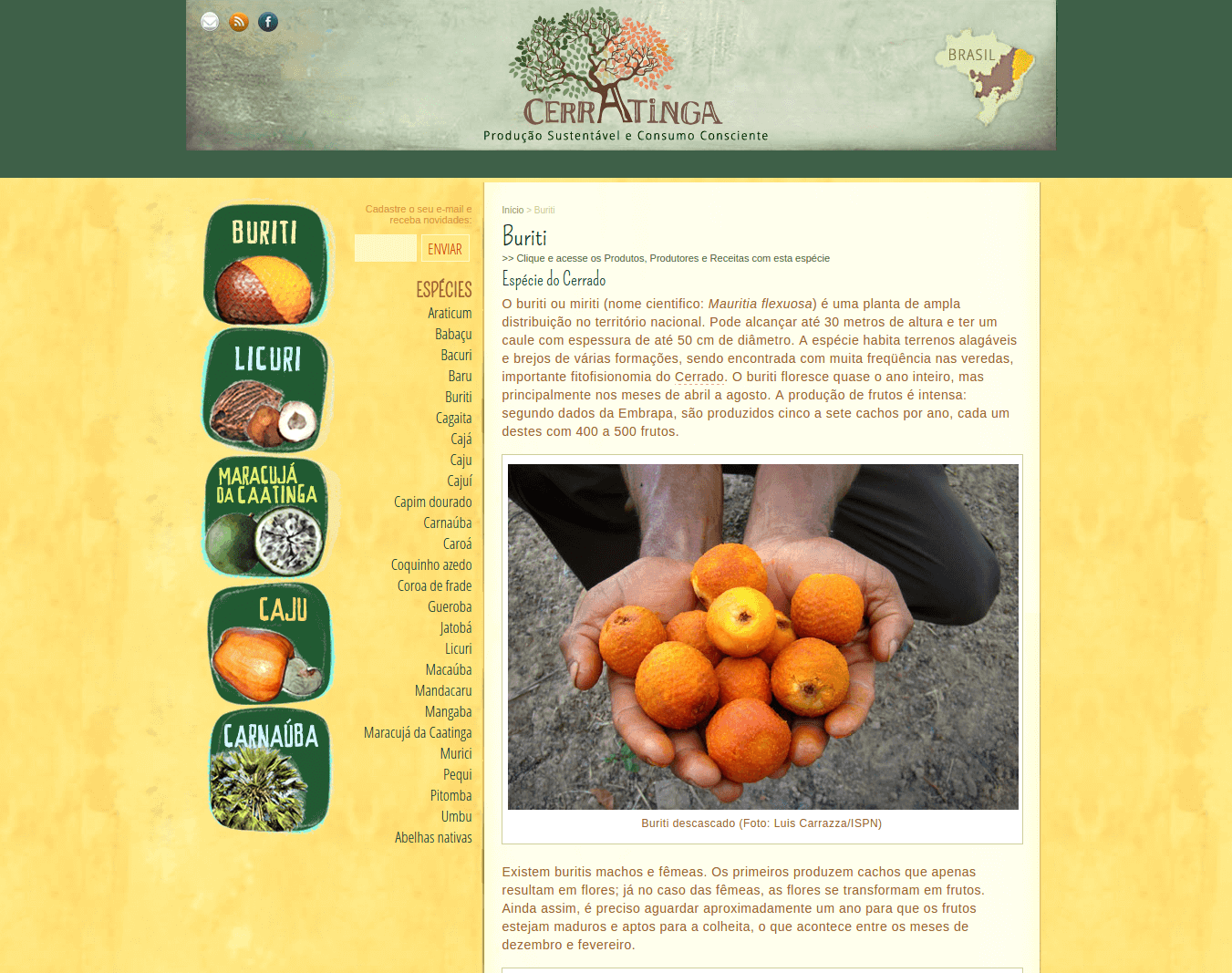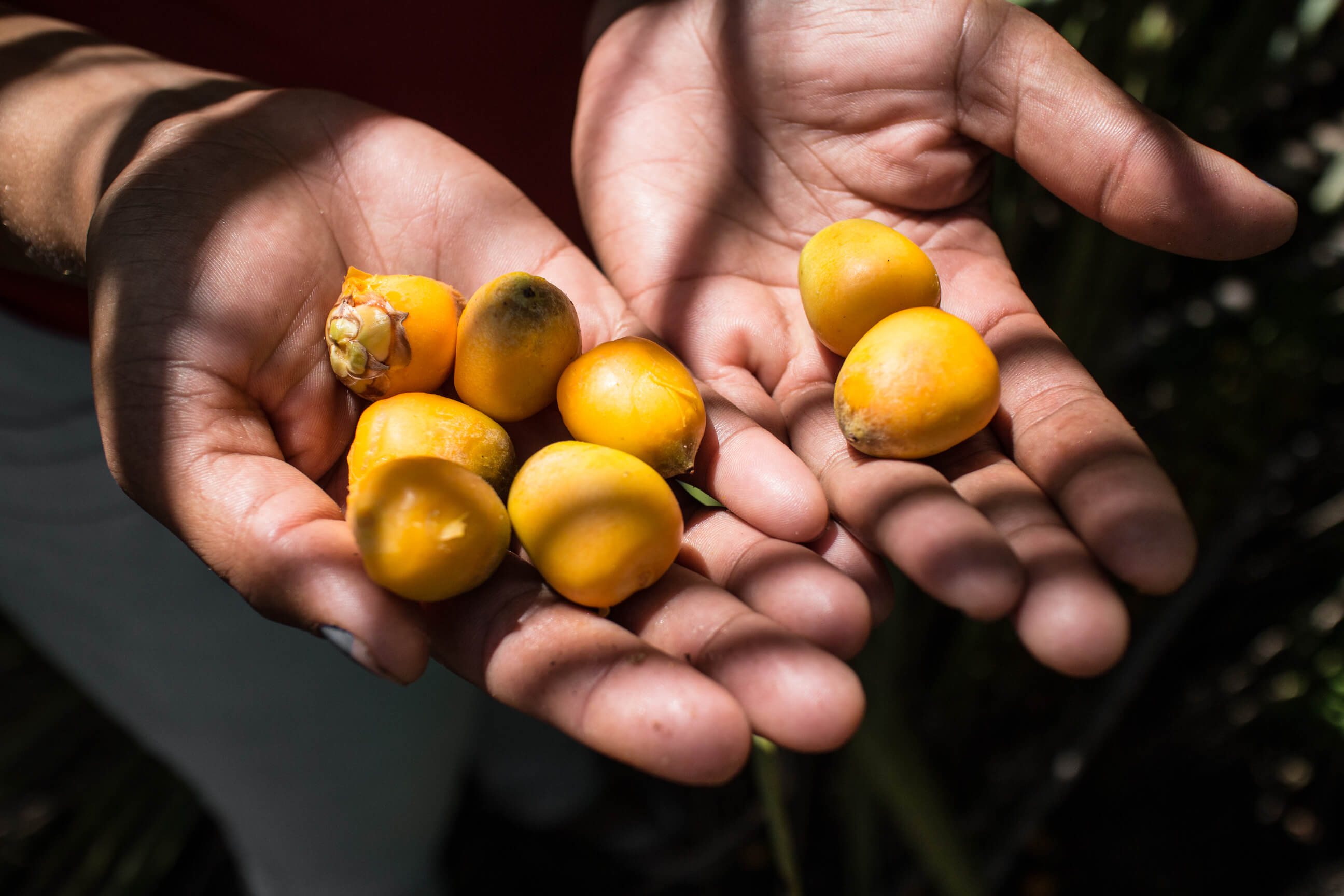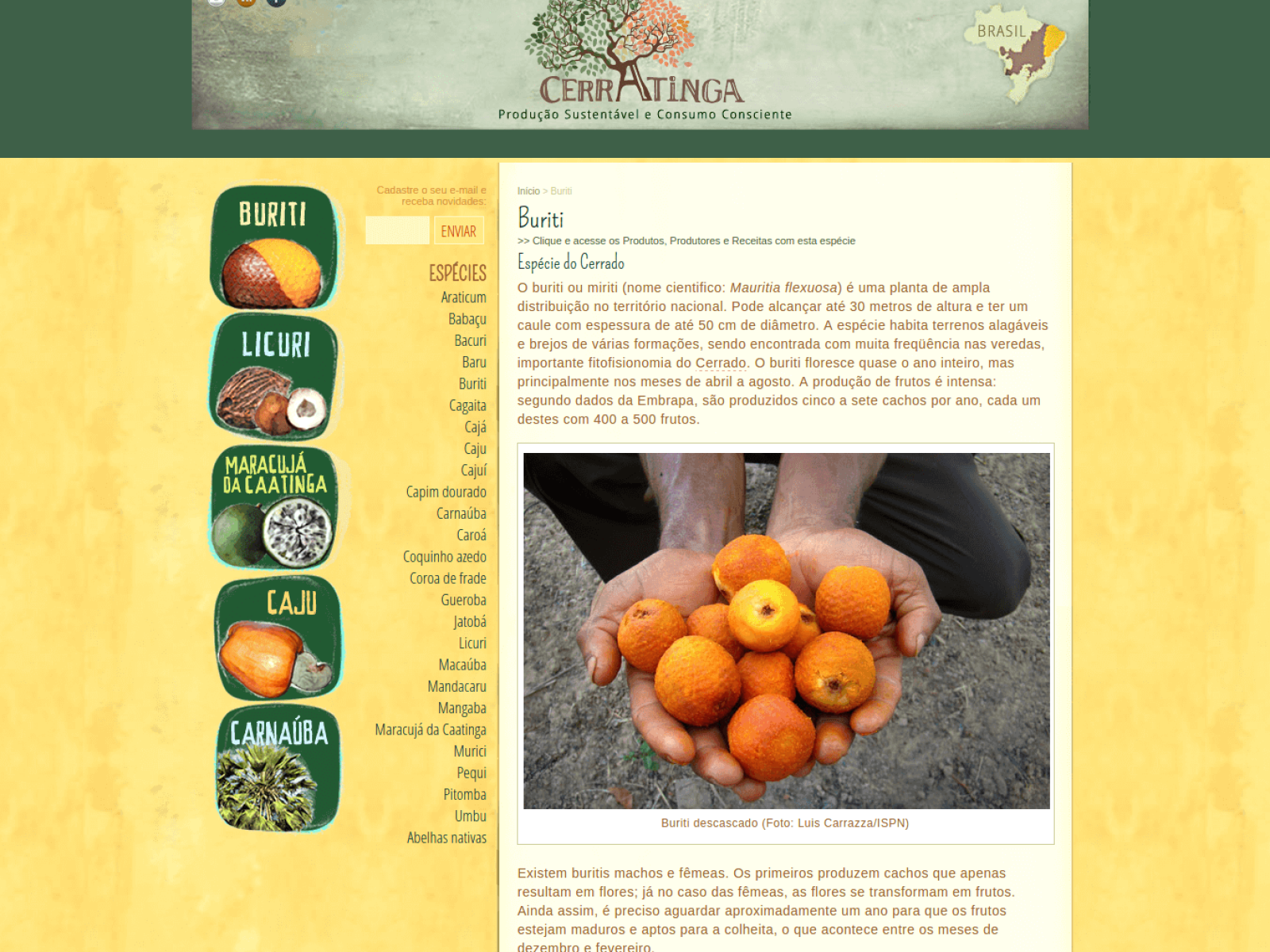An Overview Of Our Solution
- Population Impacted:
- Continent: South America
Organization type
Population impacted
Size of agricultural area
Production quantity
People employed
Describe your solution
Describe your implementation
External connections
What is the environmental or ecological challenge you are targeting with your solution?
Describe the context in which you are operating
Brazil is a rural country that is suffering the impacts of the modernization of economy. Family farmers and traditional people are still greatly responsible for providing food to the country, however they are not recognized. The life of the small farmer is becoming increasingly difficult. In the past years the difficulties have increased due to prolonged drought, caused by deforestation, and use of technological packages that make them dependent.
Most of local biodiversity products do not have an organized market, technical assistance nor appropriate legislation that allows the outflow of these products to the formal market. Thus, the biodiversity products are limited to the informal market that in general is not sufficient to the maintenance of the families producing it.
How did you impact natural resource use and greenhouse gas emissions?
Language(s)
Social/Community
Water
Food Security/Nutrition
Economic/Sustainable Development
Climate
Sustainability
ISPN works capturing large resources and applying for small grantees. The Small Grants Progamme has been operating for 22 years in Brazil. In the annual selections of new projects, we list the criteria of economic sustainability, replicability and scalability. Most of the supported projects are based in sustainable economic activities that have their plan to ensure long term, even after the funding period.
On 2008 ISPN brought together the more mature and better supply oriented productive groups and promoted the creation of the cooperative Central do Cerrado, which now has about 50 cooperative entities, operating with centralized market strategy. Most of the entities now are independent in the process.
Return on investment
Entrant Image

Entrant Banner Image

